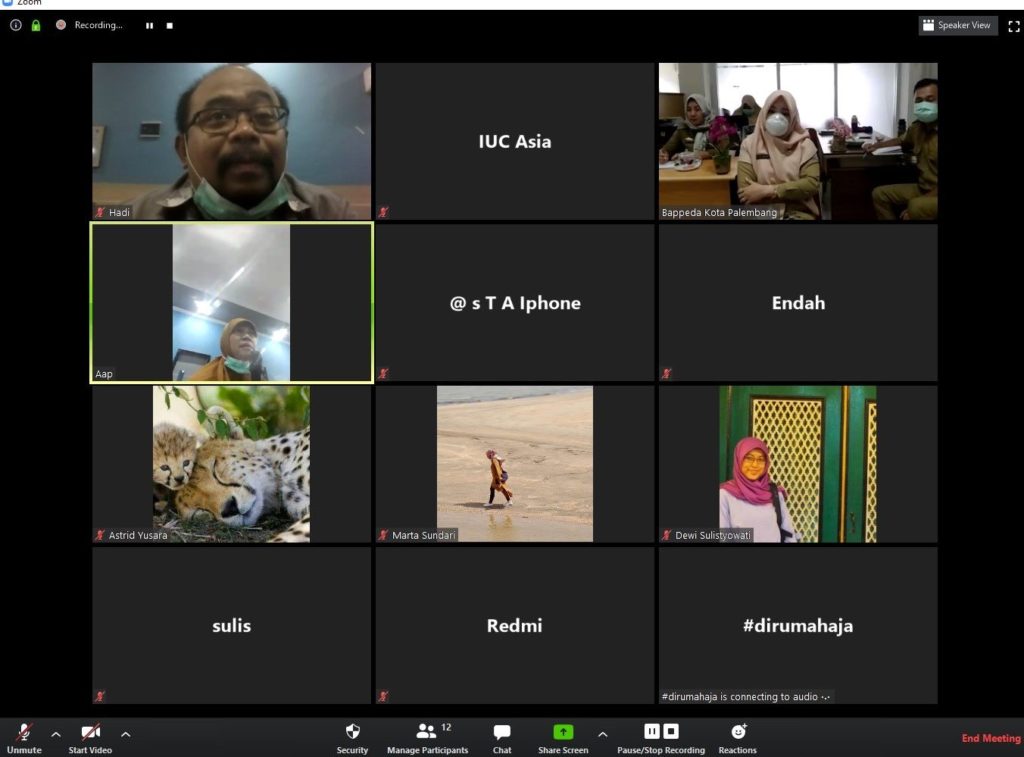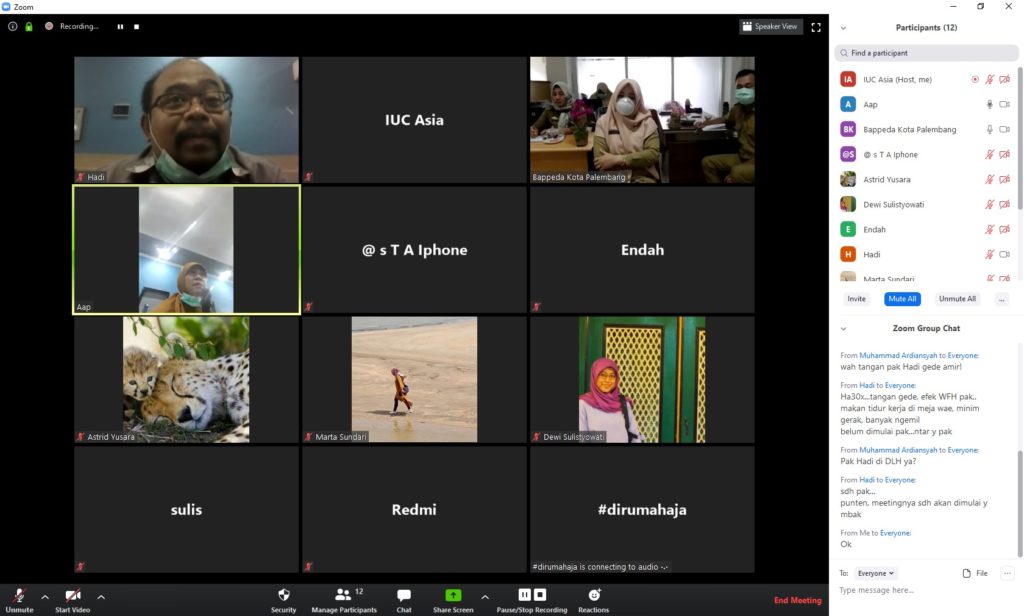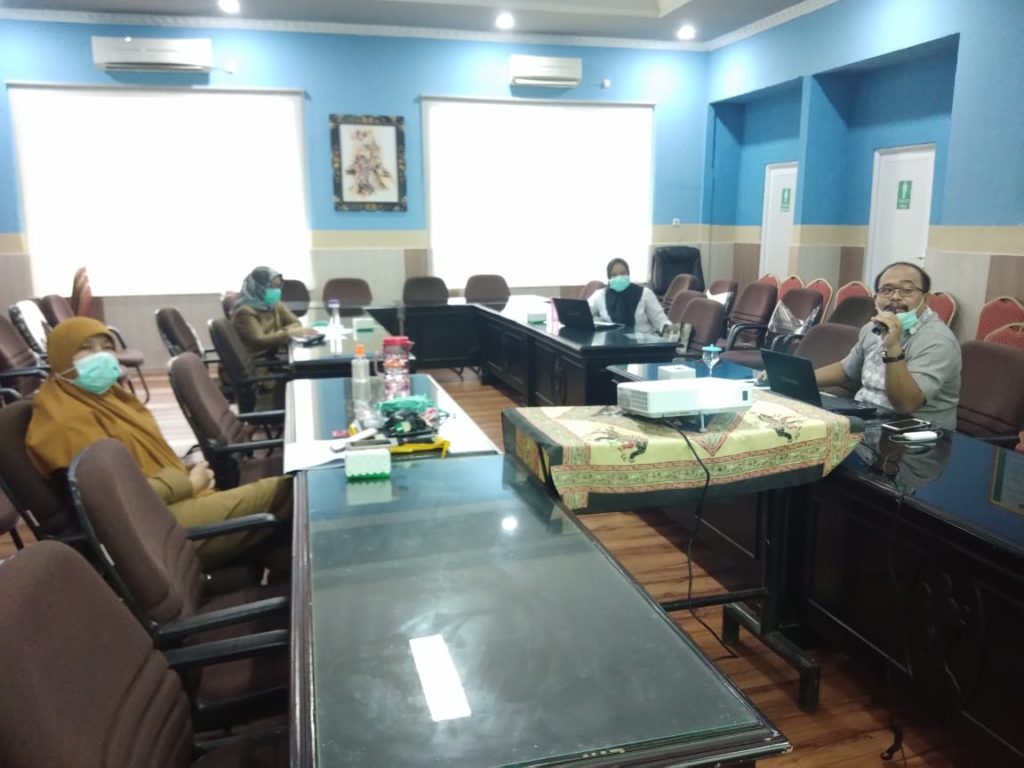On 14 – 15 April 2020, the IUC Asia programme held several consultation meetings with Palembang city to support the development of the city’s Climate Action Plan (CAP). Hosted by Environmental Agency, the meetings were attended by various city agencies of Palembang related to climate action, namely the Planning Agency, the Agriculture Agency, the Public Work Agency, the Industry & Trade Agency, the Transportation Agency, and the Public Housing Agency. During the meetings, the Centre for Climate Risk and Opportunity Management (CCROM) – the technical partner of the IUC Asia programme – presented the progress of the CAP work and took the lead in the discussion session. Due to the current COVID-19 restriction in Palembang (five people meetings’ maximum), the public was held in several batches. CCROM and IUC Asia Helpdesk joined the meeting through an online platform, while the local university assisted through face-to-face meetings with city stakeholders.
Sharing by CCROM highlighted GHG emission trend between 2016 and 2018, where annual carbon emission decreased slightly from 2016 to 2017 and remained flat to 2018. The energy sector continues to be the dominant source of Palembang’s GHG emissions, accounting for 86% of net emissions, including those associated with the Industrial Process and Product Use sector (IPPU). Within the energy sector, stationary energy accounts for 34%, fuel combustion activity in industry (34%) and on-road transportation (14%). The projected 2030 emission, which applies the average statewide GHG emissions for 2016-2018 as the base year, was demonstrated. It represented a Business-as-Usual (BAU) scenario assuming none of the mitigation measures are implemented.
The session continued with the discussion on mitigation projects in the pipeline developed by respected city agencies. CCROM underlined the need for respected agencies to provide a set of documents (document of planning, implementation, and monitoring) for the projects. Also, it was important to differentiate the mitigation action financed by own resources and additional support. That information was necessary to complete and improve the on-going developed CAP.
Impressions










